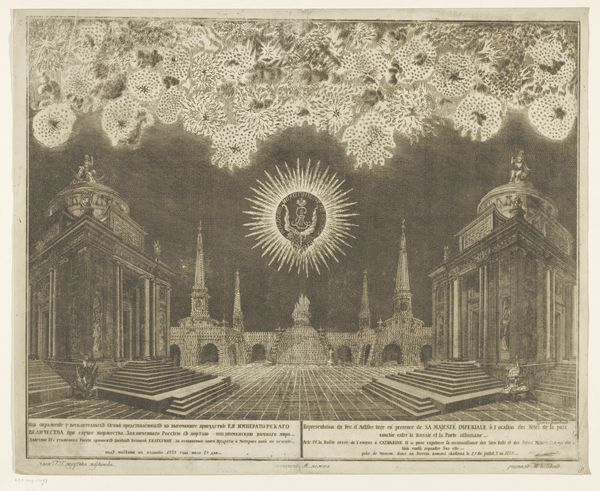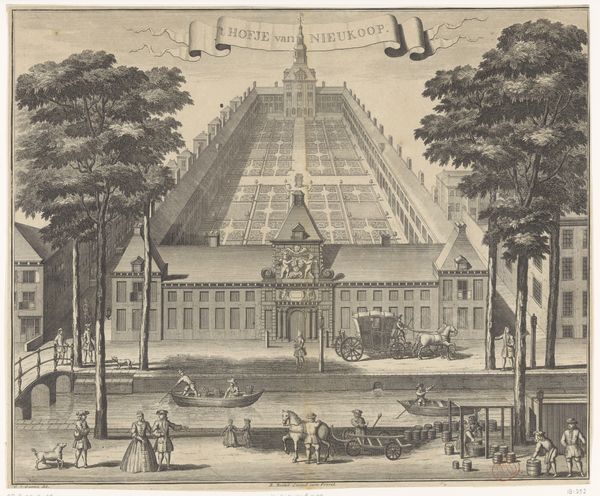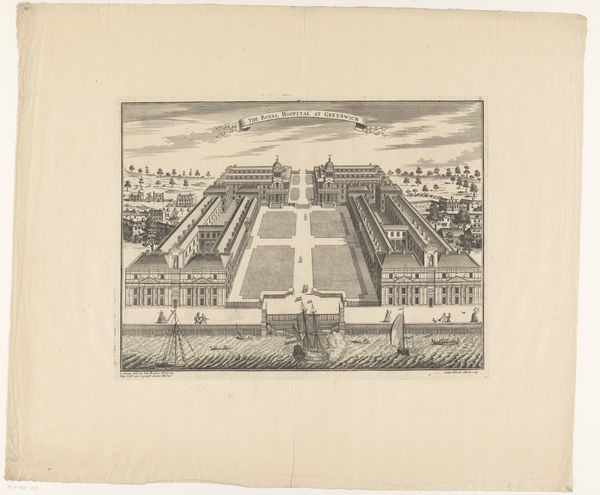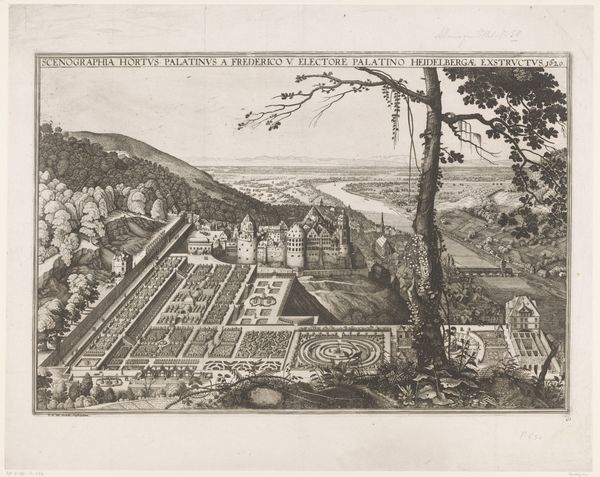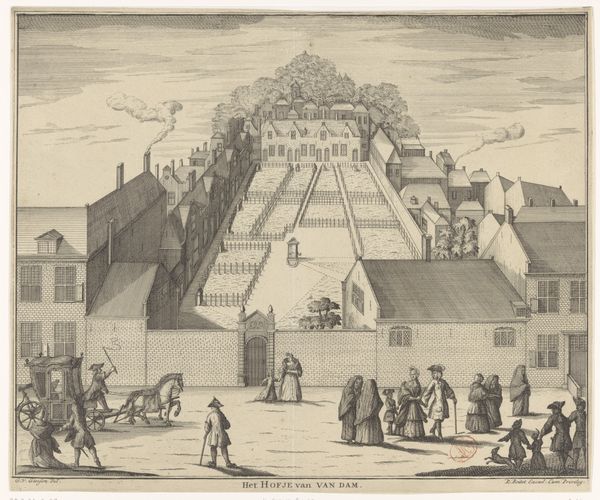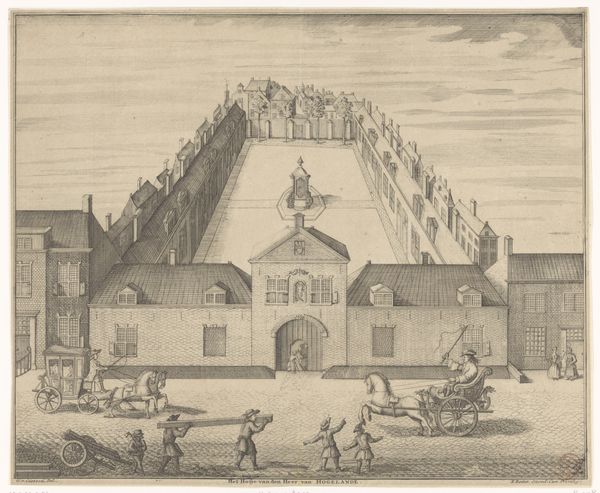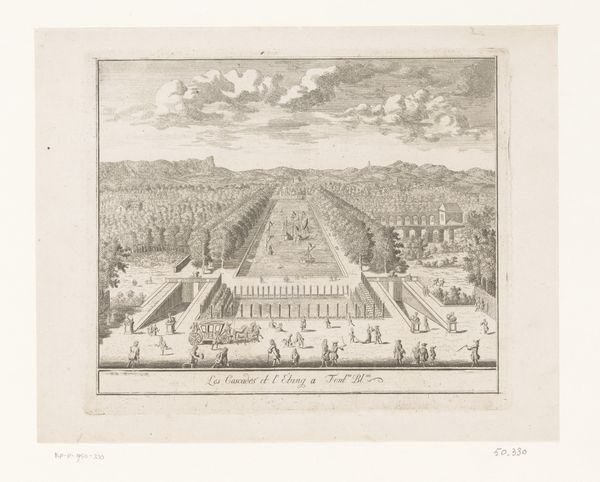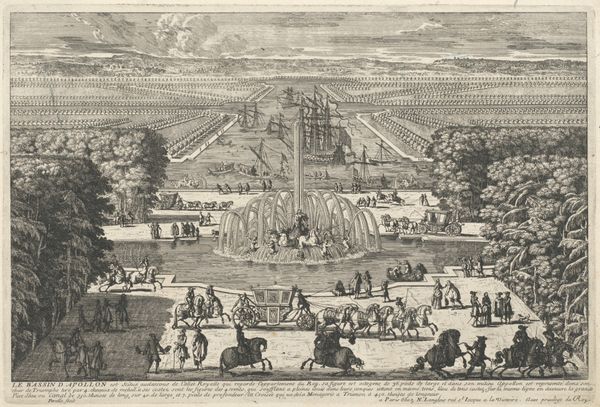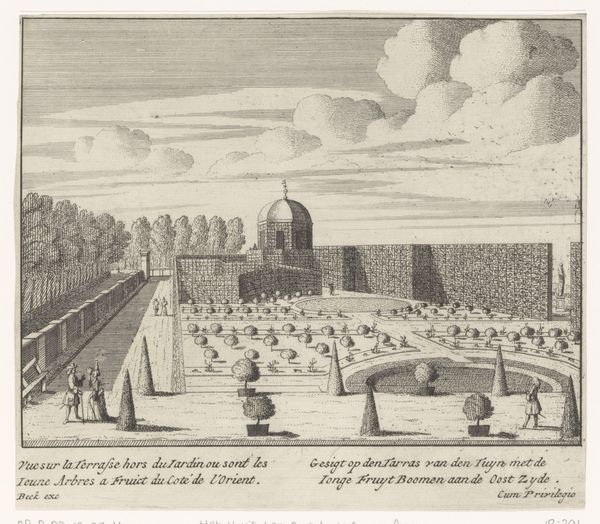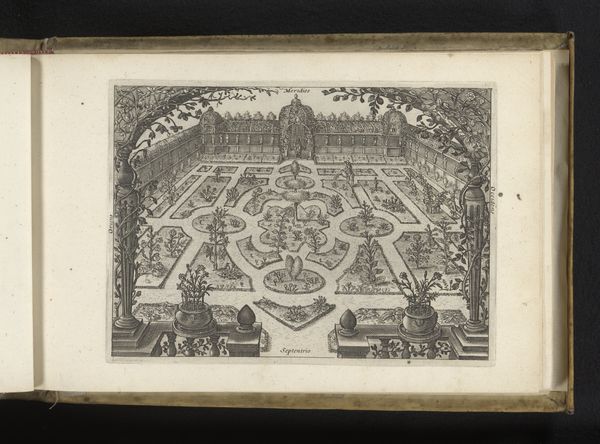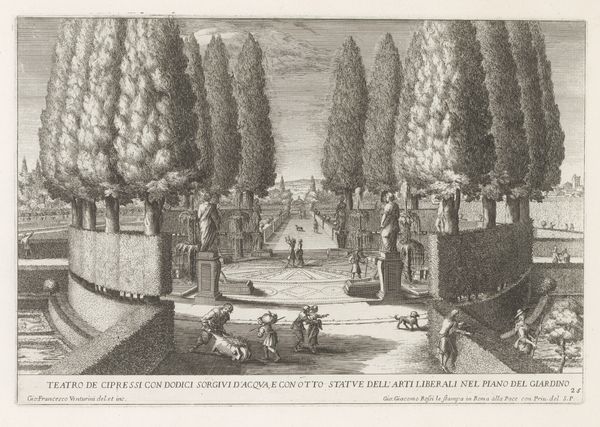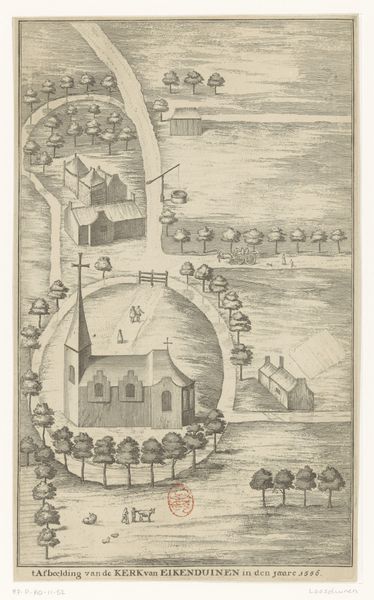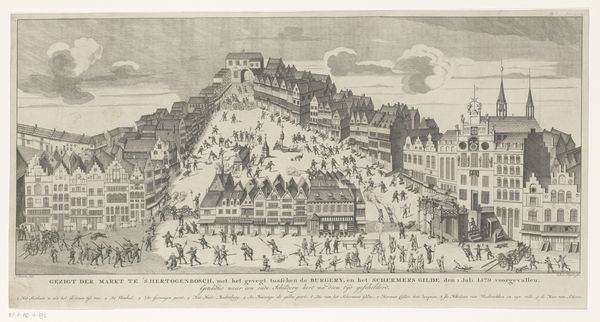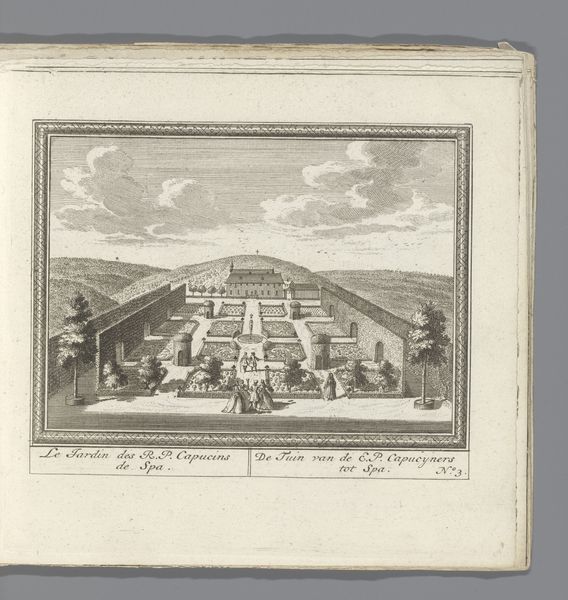
drawing, engraving
#
drawing
#
baroque
#
landscape
#
engraving
Dimensions: height 233 mm, width 283 mm
Copyright: Rijks Museum: Open Domain
Cornelis Elandts' "View of the Scheveningse Zeestraat," made in the 17th century, presents a road stretching towards the sea, flanked by meticulously aligned trees. This seemingly simple depiction evokes complex historical and cultural echoes. The avenue, almost a processional way, leads the eye to a distant church spire, a symbol deeply rooted in collective memory. Such constructed avenues, reminiscent of Roman roads or pilgrimage routes, appear across different epochs and locations. Consider, for example, the Champs-Élysées in Paris, echoing the same desire to impose order and direction upon the landscape. This motif taps into a deep-seated human impulse to control nature, reflected in the formal gardens of Versailles. The avenue's vanishing point holds an almost hypnotic quality. It is an invitation, a pathway into the unknown, symbolizing both earthly progress and perhaps, a spiritual journey. The church at the avenue’s end takes on a powerful force, engaging viewers on a subconscious level. It calls to mind the cyclical nature of human endeavor and the enduring quest for meaning, continually resurfacing across history.
Comments
No comments
Be the first to comment and join the conversation on the ultimate creative platform.
